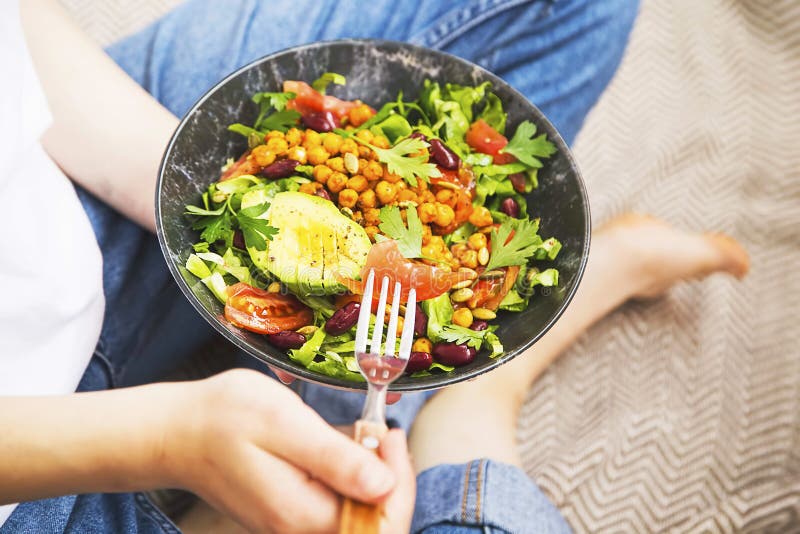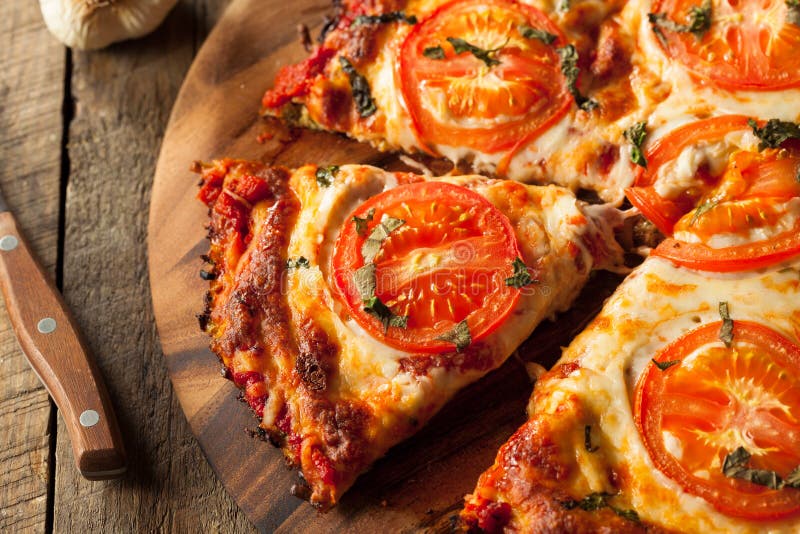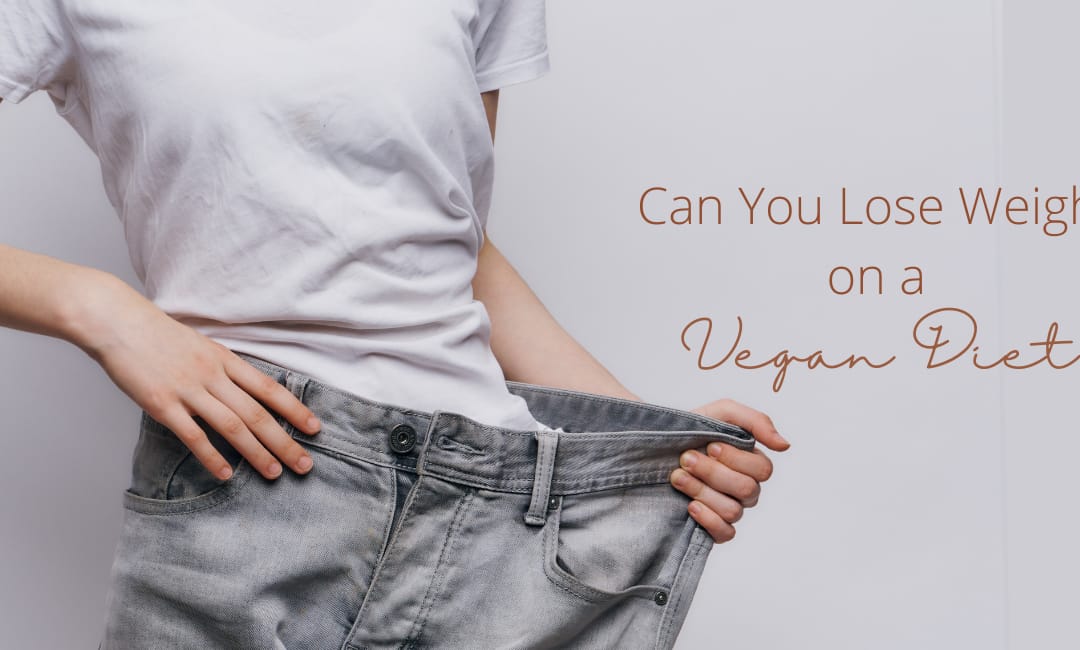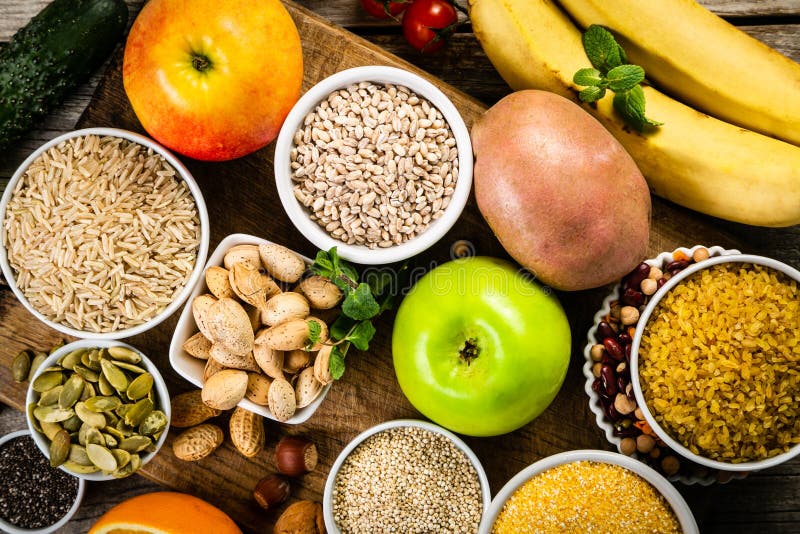Vegan Globetrotter is supported by our audience. When you purchase through one of our links, we may earn a small affiliate commission. As an Amazon Associate I earn from qualifying purchases. Your cost is not affected.
==================
Can You Lose Weight On a Vegan Diet?
Did you know that a vegan diet is a boon to your health? Yes, you read that correctly. It is! Whether you want to reduce weight, preserve animals, or help save the globe, you can always become a vegan. While we appreciate many elements of a plant-based diet, we are most concerned with the health advantages.
When followed correctly, the health benefits of a vegan diet include the possibility of living a long life. However, simply living a longer life is not the primary objective. We advocate for living a long and healthy life!
The Vegan Diet
But what precisely is a vegan diet? It is the cornerstone of a diet that is entirely composed of plant-based foods such as vegetables, grains, nuts, and fruits. Vegans forgo animal-derived foods such as milk and milk products. These foods will supplement a range of vitamins, minerals, healthy fats (since the vegan diet is low in saturated fats), and protein.
The vegan diet is becoming increasingly popular. Veganism is gaining popularity for ethical, environmental, and health grounds. When done correctly, such a diet can result in a slimmer waistline, improved blood sugar management, and even weight loss. The most frequently asked question, though, is if you can actually reduce weight by eating just plant-based meals.
Can you lose weight simply just by a vegan diet?
The answer is: Yes, because plant-based foods are high in fiber and low in calories, you won’t need to break a sweat at the gym to burn off any extra calories. Regular exercise and a nutritious diet rich in vegetables, fruits, nuts, and grains will assist you in losing the weight you desire.
But how exactly? Many types of research and studies have shown that eating plant-based meals will help you drop those excess pounds. The following are the reasons why and how it can help you with your weight reduction program:
1. Vegan diets are richer in fiber.
Fiber consumption is vital for weight reduction (and general health) for reasons other than regular bowel movements. Fiber keeps us content and full until our next meal, as well as reduces the need to snack. It controls our blood pressure, lowers our cholesterol levels, and even has anti-inflammatory effects. Because of these characteristics, a high-fiber diet is necessary for weight reduction and maintenance.
2. Vegan Foods Are Frequently Used to Substitute Whole Foods
Vegans should ideally eat a whole-food, plant-based diet, with the bulk of their calories coming from fruit, whole grains, legumes, nuts, and seeds—but this isn’t always possible. Many produce vegan food in grocery stores more than ever before, causing many people to identify as “junk food vegans.”
Without eating a single vegetable, one could consume a vegan breakfast burrito in the morning, “pesto” pasta for lunch, and an Impossible Burger for supper. Many of these manufactured vegan meals are low in nutritional content and, like the foods they mimic, should be regarded as an indulgence.
3. Vegan diets have a reduced saturated fat content.
According to the World Health Organization, we should consume no more than 10% of our calories from saturated fat or around 22 grams per day on a 2,000 calorie diet. Obesity, type 2 diabetes, cancer, heart disease, and overall mortality have been linked to saturated fat. In truth, 70% of Americans drink more than they should on a daily basis.
4. Plant-Based Foods Have Fewer Calories Than Animal Foods.
You naturally consume fewer calories on a vegan diet because plants have fewer calories per serving than animal products. Foods like leafy greens, healthy grains, fruits, and legumes may be just as satisfying as meat, cheese, and eggs while containing far less fat and calories. A diet high in vegetable protein and fiber may easily fill you up on less than half the calories of a typical American meal.
Now, let’s take a look at some of the health benefits of having a vegan diet.
Benefits of Eating Plant-based or Vegan Diet
Here are some of the best benefits of following a vegan diet for weight loss:
-
Maintaining Healthy Weight
There is evidence that eating less meat can help you maintain a healthy weight without the ups and downs of traditional dieting. Eating entire meals, according to research, makes it easier to maintain a healthy weight. They observed that people who ate less meat were less likely to gain weight. Individuals who changed their diets to include less meat, such as switching from meat-eating to fish-eating or fish-eating to vegetarian, gained the least weight.
-
It helps prevent heart disease.
One of the primary roots of mortality is heart disease in adults of a particular age. It is also usually avoidable and the result of individual lifestyle choices. Many fewer people would die from heart disease if people took better care of themselves.
-
Lower Diabetes Risk
According to a 17-year study of 8,401 people, Vegans were 74% less likely to acquire diabetes than those who ate meat at least once a week. A plant-based diet is especially useful in managing preexisting diabetes because it is high in fiber and plant compounds with antioxidant activity, which can help regulate blood sugar.
-
Cancer risk reduction
Another incentive to have a meatless meal tonight? Vegetarians had an 18% lower risk of cancer than non-vegetarians, according to a 2012 meta-analysis published in the journal nutrition. Researchers have ascribed the diet’s immune-boosting properties.
-
Cholesterol Reduction
According to research published in the journal Nutrition Reviews, a plant-based diet is associated with lower total and LDL (harmful) cholesterol levels, lowering your risk of heart attack and stroke.
-
Helps You Stay Young
A diet consisting of vegetables, fruits, and whole grains—and low in sugar, salt, and processed meats—may promote healthy cellular aging, according to a 2018 study of women published in the American journal of epidemiology. This is essential for avoiding chronic health issues.
-
Protect Your Brain
According to a meta-analysis published in the journal Frontiers in Aging Neuroscience, eating more plant-based meals is associated with a 20% reduction in the prevalence of cognitive impairment and dementia. This is due to antioxidants in plants, which clean up cellular waste and protect cells from harm, according to experts.
Tips for Losing Weight When You’re on a Vegan Diet
1. Vegan diet tip #1: Begin with the diet.
You may be stricter for one week, but it would be great if you could instill some good habits in the following weeks.
2. Vegan diet tip #2: Cut white bread and white rice
While it is not recommended that you totally eliminate carbohydrates in the future, you can cut them for a week. Eat as few side dishes as possible and avoid white bread. Instead, eat a lot of protein and vegetables. Consume high-quality carbohydrates such as unsweetened cereals, whole grain bread, and pasta.
3. Vegan diet tip #3: Reduce your sugar intake.
This is also a good thing to do after a diet. Simple sugars build up in the stomach to protect internal organs such as the liver, saliva, and intestines.
Furthermore, an overabundance of sugar is usually the source of a bloated stomach, as less sugar means a flatter belly and other advantages such as fewer wrinkles and better health.
4. Vegan diet tip #4: Add Vegetables to your plate.
Eat a lot of vegetables instead of side dishes. Plants are not necessarily synonymous with fruits; they contain a lot of sugar. Consume large salad bowls with Balkan cheese, tofu, or lentils on top. You should be able to make it through a week before switching to other sorts of healthful meals.
5. Vegan diet tip #5: Have a well-balanced whole foods plant-based diet
Having a well-balanced diet is the most significant diet for humans. Consult a vegan dietician for a weight-loss plan. Just because you’re a vegan doesn’t mean your weight doesn’t vary.
6. Vegan diet tip #6: Peanut butter is your friend.
Peanut butter is Calorie-dense, protein-rich, and is reasonably priced for its quantity. A few spoonfuls throughout the day may help you in reaching your maintenance calories.
7. Vegan diet tip #6: Do some cardio.
If hitting the gym isn’t your thing, try to do some brisk walking. On a lovely morning, take a stroll to the corner shop or just around the corner. Walking is accumulative. Despite working, you can travel around 40 miles every week.
How long does it take to lose weight on a vegan diet?
Several dieticians have estimated that losing weight on a vegan diet takes twice as long as on a non-vegan diet.
Why is that?
People usually reduce the amount of fat, sugar, salt, and animal products in their diets to lose weight. However, these are all things that are more or less strictly limited or prohibited by vegan diets.
What is left for vegans, then?
Meat-replacement products, vegetables, grains, and beans. Replacing meat with plant protein often leads to eating fewer calories overall. However, even though plant protein can be high in calories (nuts contain lots of healthy fats), the average American eats too much protein anyway (one regular bagel contains around 15 grams of protein).
Because of the less strict rules for vegan diets, weight loss is much easier on a vegan diet than on other diets. Not only are there no forbidden foods, but eating healthy is rewarded with eating more. After all, vegetables contain very few calories per kilogram because they are mostly water.
Most people think that it’s harder to lose weight when you eat plenty of high-calorie foods like nuts, seeds, oilseeds, and grains, but this is actually beneficial for your health in many ways.
The slower weight loss can also be explained by the fact that vegan diets increase your metabolism slightly (around 5 to 10 percent), which means your body uses up more energy–more calories–at rest throughout the day.
This extra energy is what makes it easier to lose weight on a vegan diet. However, many vegans experience that they are not hungry but still eat because their body needs energy food (people often call this “hunger” instead of feeling like your calorie intake isn’t high enough).
Long story short: Vegan diets do not make it harder to lose weight; you have to eat fewer calories than you burn. But since vegan diets tend to increase your metabolism slightly, the number of calories you need decreases automatically. The result? You will lose weight naturally without much effort. Of course, losing weight is never easy, but it’s at least healthy and satisfying with a vegan diet!
Vegan foods for weight loss:
– Grains: oatmeal, whole grain bread, starchy vegetables like potatoes and corn
– Plant proteins: beans, nuts and seeds (lentils, chickpeas), meal replacement products (“tofu bacon,” soy sausages)
– Fruits and veggies: cucumbers, oranges, bananas, spinach
– Healthy fats: avocados, soy spreads, oils
– Natural sweeteners: stevia, maple syrup, molasses
Tips when following a vegan diet for weight loss:
– Eat only when you’re hungry, but eat mindfully and slowly. Don’t just wolf down giant platefuls because your body needs energy.
– Many people think that vegan diets are healthy because they contain so many plants, but these plants can also be high in sugar, so watch out for how much fruit and starchy vegetables you eat!
If you exercise regularly or feel like eating more, include some grains and beans in your meals to get enough protein for muscle growth and repair.
– If you want to lose weight quickly by following a stricter version of a vegan diet, try the low-fat vegan diet for faster results. This is recommended if losing pounds quickly is more important to you than being healthy.
– Read the labels of plant protein products carefully to keep your calorie intake in check!
– If you don’t exercise, try not to lose more than one or two pounds per week. Losing weight too quickly leads to loss of muscle mass and makes it harder to maintain your weight loss in the long run because you will be weaker.
– Don’t skip meals; this can actually cause you to gain weight by increasing your appetite later on (you think, “I skipped breakfast, I might as well eat another sandwich”).
– Drink lots of water (at least eight glasses per day) but not with your meals–this fills up your stomach and limits how much food you can eat!
Jumping rope for 10 minutes is a good way to start exercising. But, if you’re already fit, try cycling or running for 30-60 minutes every day!
In Conclusion:
Losing weight is not as difficult as most people think. The vegan diet actually makes it even easier because you can eat many tasty foods and still end up losing weight!
Read More:
How to lose weight safely and naturally: 20 tips(medicalnewstoday)








Don't miss out
when new recipes and information are added!
Join our newsletter for free recipes,
healthy living inspiration, and special offers
You have Successfully Subscribed!